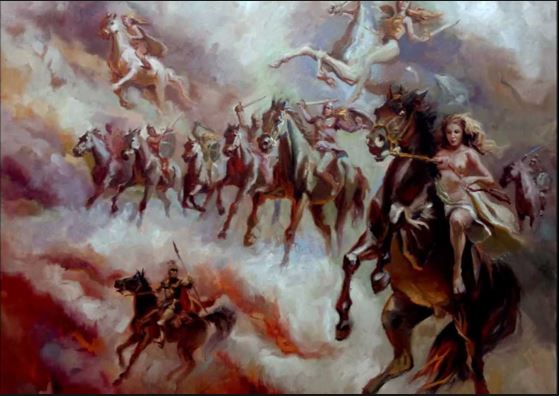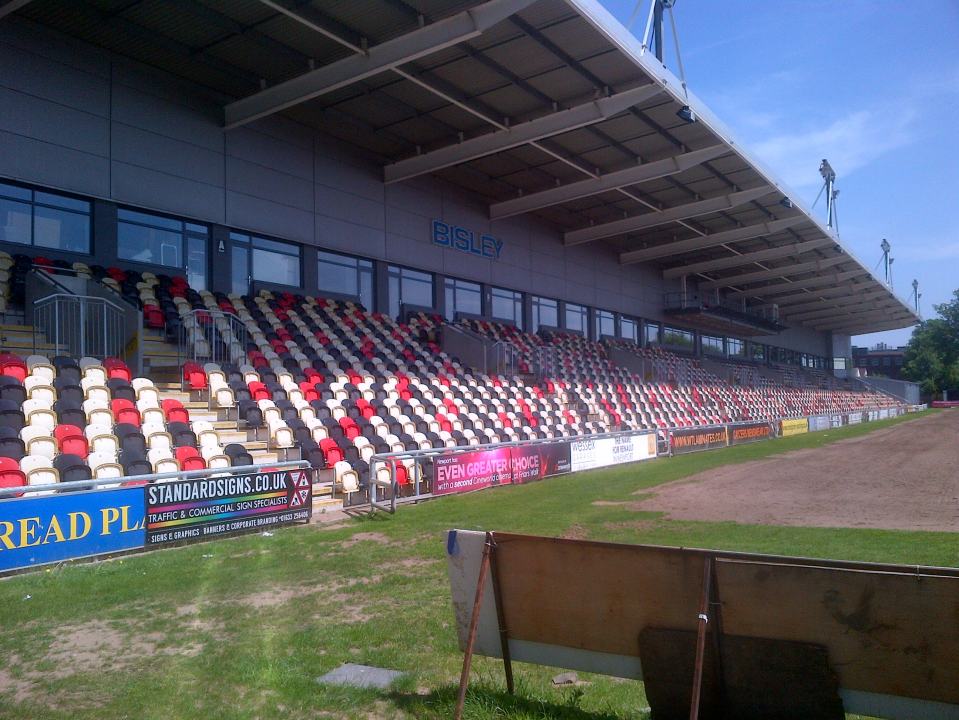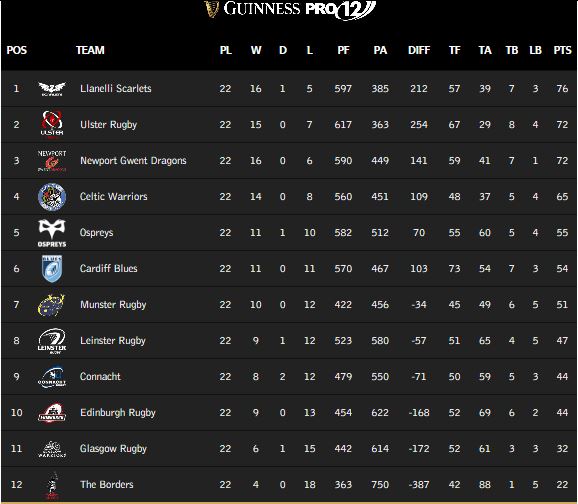“FUTURE DEVELOPMENTS It is hard to look beyond the ‘separation of the Dragons’ as the single most important challenge facing the group, and it is hoped that this will be completed in 2016/17.” – Newport RFC Ltd accounts 2015-16, filed 27 February 2017 (link)
“You couldn’t say no (to the WRU taking the Dragons over). We’d do whatever we need to. If it came to that we’d have to look at it and whether we could afford it, but my view is that professional rugby clubs going forward have to have a combination of union funding and private investment. The big thing for me is that there are 73 clubs in Gwent and they have a rich history and have always produced amazing players. There is no way that I’d be able to stand here and not have a professional club in Gwent without knowing that I’d done everything I could. We just have to find the right model and make the appropriate investments.” – Martyn Phillips, WRU CEO (link)
“Rugby is staying here, I’ve not done all of this for the last 15 or 20 years to let rugby disappear. That’s a priority. We built the Bisley Stand for the Dragons and Newport RFC. It’s a Gwent team and should stay and play here. Where else are they going to play?” – Martyn Hazell, Newport Gwent Dragons Chairman (link)
And so it finally begins…
The great 19th century German composer Richard Wagner is a controversial historical figure. He would be even on his believed personal views. Being the fictional Inspector Morse’s favourite composer only gets you so far in credit, when you are also perhaps best known as being Adolf Hitler’s favourite composer. Bayreuth, and Wagner’s operas, featured prominently in the culture and events of the National Socialist German Worker’s Party. Even if many leading Nazi Party apparatchiks hated being dragged along to them by Adolf Hitler.

Die Walküre (the Valkyrie) is a music drama, based on Norse mythology, and part of Wagner’s Der Ring des Nibelungen (The Ring of the Nibelung) opera cycle. For those of you rusty on your Norse mythology, a Valkyrie is one in a group of female figures who decide which soldiers die in battle and which live, and in the afterlife select half the slain warriors for Odin’s Valhalla and the other half for Freyja’s Fólkvangr. The best-known excerpt by Wagner is the “Ride of the Valkyries” (link), famously and controversially used by Francis Ford Coppola in his “Apocalypse Now” Vietnam war movie (link). The US Army attacking a Viet Cong village, to the music of Adolf Hitler’s favourite composer.
WalesOnline journalist Andy Howell wrote about the worst kept secret in Welsh rugby on 1 March (link), that the Valkyries have most definitely decided that the Newport Gwent Dragons will be the first Welsh “super” club to be slain and shipped off to the afterlife. But very much to Valhalla or to Fólkvangr, not to Colwyn Bay. A thriving region to replace it. They will leave the mechanics of that to Martyn Phillips and to Stuart Davies.
The retirement of the first generation 1990s Newport RFC benefactors and the severance of the permanently troublesome “hard link” with Newport RFC was perhaps always going to end this way for the Newport Gwent Dragons, with a WRU member club takeover (link). The fundamental issues left unresolved in 2003 (and since) by the ill-judged stand alone “regions” imposed elsewhere upon the WRU member clubs.
What use in Caerphilly (one of the candidates to resolve the 6 May Pro12 fixture clash at Rodney Parade), a great medieval fortress but firmly west of the Rhymney River and within the de Clare family’s Lordship of Glamorgan, is the “Newport Gwent” brand? “Newport” and “Gwent”, branding that is superfluous even in Newport and in the rest of Gwent. The Ospreys, or should I say Ospreylia, have proven that. Shall we re-name them as the “Swansea Western Glamorganshire” Ospreys, anybody? I think not.
The follow up debate quickly began (link) (link), before the wider Welsh rugby media widely reports that the Valkyries are already looking at other Welsh “super clubs” on the verge of being slain by the same internal and external market forces. Apart from the ever outstanding Steve James of the Times, already adding to the debate (link). Unwanted “super” club rugby being slain, off to the afterlife, the only real obstacle being the one “super” club that tried to be a region. Ospreylia. Oh the irony in that.
The Scarlets, currently strong on the field but always perilously weak financially. As they lost nearly £1 million in 2014-15, you have to fear for their soon due 2015-16 accounts and their current 2016-17 trading position. And the Cardiff Blues, underwritten for decades by Peter Thomas but now hopelessly out of step with Welsh rugby and (frankly) making a hideous mess of bringing Districts B and C players and fans together in order to compete with the Irish provinces in the Pro12. For this is a representative region that should be competing at the business end of the European Champions Cup, not a “super” club wallowing in the bottom half of the Pro12. But playing on prime Westgate Street land, the WRU Stadium sooner or later in need of further work at the northern end. Facts all to aware to both the WRU board and to the Cardiff Athletic Club trustees.
The Newport Gwent Dragons “super” club “mish mash” is soon to be sent to the afterlife, pro rugby to be sustainably reborn and rebuilt as a Dragons region under WRU control and ownership. Possibly under a completely new identity altogether, if the WRU decide that a completely new brand unsullied by any 2003-17 issues is required and the Dragons brand (using a symbol from the national flag, rather than in any way related to any regional identity) might in the longer term be better financially re-allocated to the re-constituted Wales “A” team and re-launched there. “Killing two birds with one stone“, you might say. The Irish Wolfhounds, the English Saxons, the Welsh Dragons. What brand for the WRU East region franchise area, in that possible (if not probable) scenario?
Possibly taken over with some private investment, although preferably without at this stage in order for the WRU alone to take the difficult (if required) identity decisions without compromising any of these future private investors. Once inclusive identities and brands are resolved and a union has healthy representative regions, or representative regions heading towards health, then private investors that can add value can successfully be brought aboard. The short-term priority is to stabilise the ship, but without long-term complications. Look no further than the 5 NZRU regions in Super Rugby, for the template. Welsh pro rugby is a hard sell to any quality investors at the moment, given what has transpired 1995-2017. That will soon change, if modernisation is done properly.
Few will mourn the passing of the 2003-20 “super” club era, the worst possible way of implementing the non-Test pro rugby resource concentration that was long overdue by 2003. They were not what the WRU member clubs wanted. Not what the WRU executives wanted. Not even what the consumer market wanted. Producer driven, under legal threat of enforcing the already obsolete Loyalty Agreement (link) unless undermining exemptions were given to them under the new planned regime. North Wales rugby disenfranchised altogether, much of South Wales rugby alienated by identity/branding. Disenfranchisement cannot resolve itself, alienation just cascades down the generations.
No universal player central contracting to properly regulate the overall internal market, to more efficiently protect against external market forces, and to prioritise the development of Welsh qualified talent and to strategically target any external project players. Other than the Swansea/Neath amalgamation at the non-Test pro game level, not even the creation of new regional level (clubs and communities neutral) points of shared identity. No alignment with WRU governance, through corresponding WRU regional boards, and no slimmed down WRU main board with the creation of such aligned regional boards. No joint procurement, each entity inefficiently doing their own thing. Both income unearned and income inefficiently spent, the unwanted disjointed double whammy.
Welsh rugby has spent the last 22 years arguing over the wrong underlying issue. It has never been central control versus (nominal) independence, notwithstanding the thousands of man hours wasted on this sideshow. A broadly central control strategic model is required in all small countries, because more has to be squeezed from less. Ask New Zealand. Ask Ireland. Even ask Scotland. The real intellectual debate is the correct allocation between centre and devolved, whatever the model of private investment encouraged and secured, the centre to do what is best done from the centre and the devolved to do what is best done at the devolved level. No bureaucratic micromanaging from the centre, no devolved operation left inadequately unsupported by the centre. Welsh rugby will not arrive at the correct answers, until it asks the correct questions.
Newport RFC filed their group annual accounts for 2015-16 on 27 February 2017. They graphically show why they need to sever their hard link with the Newport Gwent Dragons, not just why the pro team need to sever their hard link with Newport RFC. The figures do not make happy reading, at all, and matters are clearly unlikely to have improved since 1 June 2016 given all the uncertainty and deteriorating results.
A break even profit of £177,094 in 2014-15, helped by a one-off £500,000 payment by the WRU to the Dragons for signing the Rugby Services Agreement and £379,000 being earned from hosting functions at the NATO conference, was converted in 2015-16 into a £754,840 financial loss. The loss from the Newport Gwent Dragons “super” club subsidiary was £761,495, or more than the total overall loss. Total liabilities exceeded total assets at 31 May 2016 by £1,629,175, and there were net current liabilities of £6,385,471.
As no new loans from funding directors were received, the group overdraft increased from £224,058 to £446,673 i.e. by £222,615. A second tranche (£325,000) of the interest free £900,000 loan to each region from the WRU member clubs agreed in the 2014 Rugby Services Agreement was drawn down. With £325,000 having been borrowed in 2014, it is likely that the remaining £250,000 available has been taken as a third tranche since the period recorded in these accounts. Each tranche was initially agreed as repayable in September 2017, September 2018 and September 2019. It is painfully obvious that the Newport Gwent Dragons are not in a position to repay these loans to the WRU member clubs, on these initial agreed dates or at all. Interestingly, the Newport Gwent Dragons additionally required another interest free loan of £125,000 from Pro Rugby Wales.
The outstanding secured mortgage on Rodney Parade was £820,089, on an asset book value of £5,923,003, in addition to the £650,000 owed to the WRU member clubs and the £125,000 owed to Pro Rugby Wales. There are also historic loans owed to funding directors in the amount of £5,605,813, upon which interest was waived, and of which £3,270,000 was owed to Tony Brown and connected companies and £2,135,813 was owed to Martyn Hazell and connected companies. £3,970,000 of this debt has a second priority security charge. In the event of any senseless resistance from small shareholders over the sale of the Newport Gwent Dragons, these funding directors, upon agreement with the bank, could effectively take personal ownership of Rodney Parade through calling in these loans.
Not that any senseless collective behaviour by small shareholders will happen. As Newport RFC would not be able to afford a facility such as Rodney Parade without a rugby pro region being headquartered there, as semi-pro WRU Premiership rugby income streams would be inadequate (even with the current regional player development pathway funding approaching £100,000), it is clear that Martyn Hazell and Tony Brown have thought about and care about the heritage of Newport RFC. They will remain shareholders of Newport RFC, Tony Brown the controlling majority shareholder on his own. They are walking away from pro rugby, not from Newport RFC and semi-pro rugby. Unless there is a much grander takeover of the group, with the WRU and/or private investors buying virtually everything outright.
I have seen some terrible tweets and posts on social media from a few fans purporting to be Newport RFC fans. We are not in a Celtic Warriors scenario, where the WRU was then impecunious and had one more “super” club in 2003-04 than ever required and affordable. Having invested so much, both in time and money, over 15-20 years, including building the Bisley Stand (below) to provide a long-term corporate hospitality facility necessary to sustain pro rugby, the odds on Martyn Hazell and/or Tony Brown writing-off debts owed to them in the millions without cast iron legal guarantees from the WRU of ongoing pro rugby headquartered at Rodney Parade must be practically zero.

The Newport Gwent Dragons will not be sacrificed to make way for RGC1404, for we all know where the pro rugby duplication within close geographical proximity is to be found. The River Loughor, not the River Usk.
And the future of Newport RFC will be better, for Newport RFC can exclusively focus upon Newport RFC. How long before a WRU Premiership title, without joint directors and executives focussed of necessity almost entirely on the professional team?
And whilst the slain Newport Gwent Dragons “super” club might be embarking upon its final death ride with the Valkyries, the future for pro rugby in this rugby region is bright.
There are no doubt heavy negotiations taking place, keeping the lawyers busy. The pro region, whether majority or exclusively owned by the WRU member clubs, including all the clubs of this region, will inevitably require as a minimum, unless they purchase the facility freehold outright (with all the Newport RFC governance issues that would create), long-term operational and commercial control of Rodney Parade, with Newport RFC as both the freeholder landlord above and the sub-tenant below. The region will need Rodney Parade, Newport RFC will need the region. Nothing will change, even if a few region matches will probably take place elsewhere (link).
Something needs to be done about the pitch, which clearly cannot sustain 3 teams as a grass surface. Soccer will not permit 3G, a Desso is very expensive and especially when the region squad is desperately in need of experienced signings in key positions. There are some fantastic young pro players, Hallam Amos and Tyler Morgan already on marquee dual central contracts, if retained and brought through together. Maybe Gavin Henson could be tempted for a swansong, to improve his legacy? A player of sublime skills, pivotal to two Grand Slams, but who will otherwise be sadly remembered as a great talent ultimately unfulfilled. Another season at Bristol RFC would just be adding another layer of waste, when he could add experience and value at this region.
We all have ideas on how to revitalise the pro region, how to convert a dying “super” club into a thriving region. Myself included. Well, myself perhaps more than most. Some ideas I have made public, explicitly or implicitly. Some ideas that I have privately conveyed to only a chosen few. Others known only to myself. Please keep reading the blog, for better times lie ahead for pro rugby in this region if things are done properly. The debate must rage, we have people at the top of the WRU who are listening.
For, unlike in 1995 and 2003, the WRU member clubs now have the ability to do things properly. There can be no excuses for failure. Vested interests that did not want perceived surrender to Roger Lewis, even on the issues where he was broadly correct, no longer have to surrender to Roger Lewis. The language of victory and defeat is hardly the language of Martyn Phillips. The regional future must include all, including those currently battered and bruised from unsuccessfully trying to be “super” clubs in an unsuitable diverse small country. There are not enough chimneys in Wales for anything but unity, and regionalism or provincialism is the only viable mechanism for such unity. There will be little opposition in the main body politic of Welsh rugby to “super” club euthanasia. For there were never supposed to be “super” clubs in the first place.
So let us see which other struggling “super” clubs the Valkyries choose and in which order, for there is only one direction of travel. All roads lead to either Valhalla or to Fólkvangr, for one is the equivalent of central control and the other is the equivalent of central control with regulated private investment. I prefer the latter approach, the New Zealand regions model since 2013, for a myriad of reasons. There is no third way. For internal and external market forces have slain the 2003 “super” club fudge. As was inevitable all along, if hurried along in recent years by Anglo-French pay per view broadcaster rivalry and more efficiently organised Irish representative provincial rugby. For all the pyramidal problems, Welsh rugby has the young player talent in abundance.

All that matters now is what comes next, not the Wagnerian denouement to the “super” club concept, and how we start to reverse the decline against the Irish representative provinces that has inevitably opened up in the Pro12 since 2003-04 (above).

The people who still run welsh rugby keep harping on about the great heritage these clubs have they are supposedly regions Cardiff blues ,Newport Gwent dragons,Llanelli Scarlets, osprey’s the clue is in the names used three use the same colours and nicknames ?? Only one just uses it nickname and they can’t understand why no big crowds watching how thick can they get
LikeLike
A sports team needs a local identity to attract a following. Any further attempt by the WRU to make the ‘regions’ into simply annonymous franchise teams is doomed to failure.
LikeLike